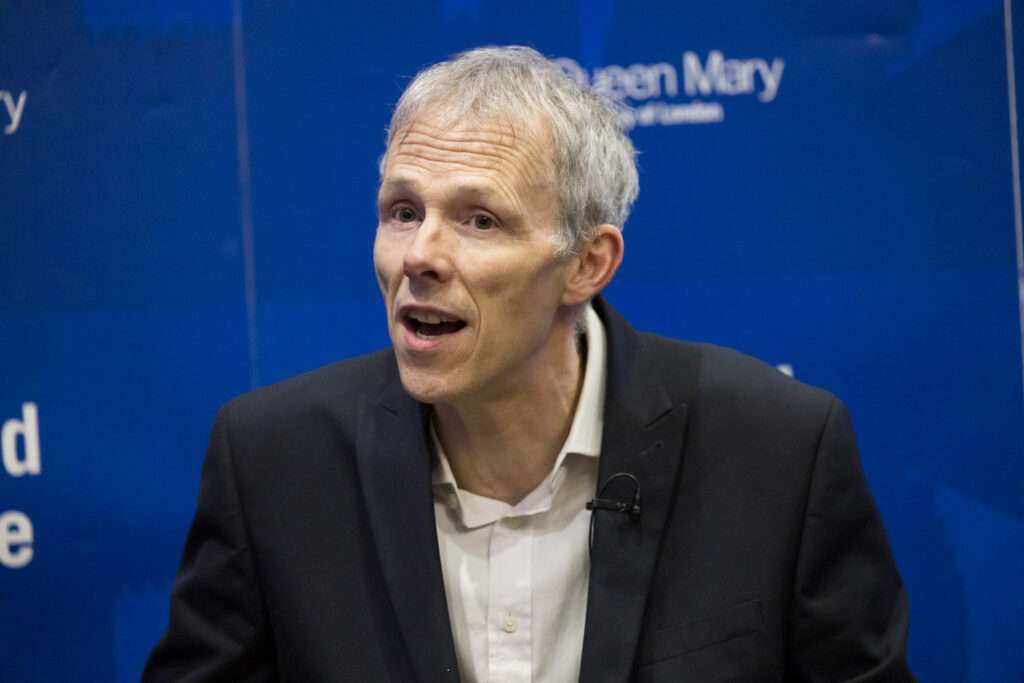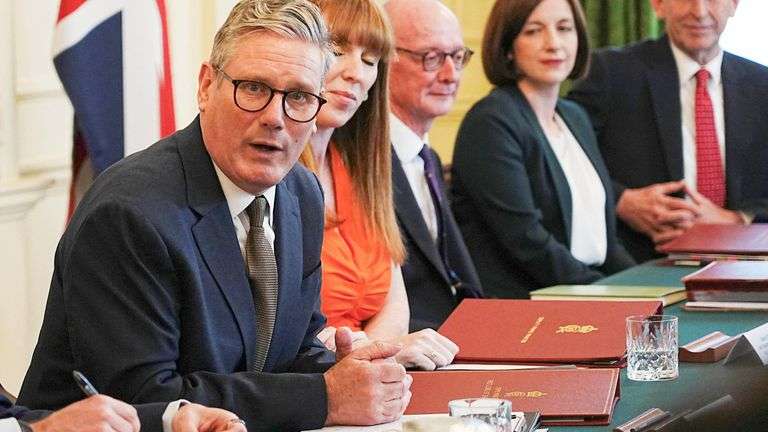Prime Minister Keir Starmer convened his inaugural Cabinet meeting on Saturday, July 6, stepping into his role with a mandate to address a series of pressing domestic issues and to win over the public.
Welcoming the new ministers to the iconic 10 Downing Street, Starmer expressed his profound honor at being asked by King Charles III to form a government.
This ceremony officially confirmed his position as the UK’s new prime minister.
“We have a huge amount of work to do, so now we get on with our work,” Starmer declared.
The Labour Party’s landslide victory on Friday delivered a historic blow to the Conservative Party, ending their long-standing dominance.
Labour’s win was largely driven by a promise of change, appealing to a public eager for new leadership.
The new government faces numerous challenges, including reviving a sluggish economy, overhauling the ailing National Health Service (NHS), and rebuilding public trust in government institutions.
“Just because Labour won a big landslide doesn’t mean all the problems that the Conservative government has faced have gone away,” commented Tim Bale, professor of politics at Queen Mary University of London.
Following his meeting with King Charles at Buckingham Palace on Friday, Starmer made his first remarks as prime minister, emphasizing the immediate commencement of his work while cautioning that tangible results would take time to materialize.
“Changing a country is not like flicking a switch,” he stated, addressing a crowd of enthusiastic supporters outside 10 Downing Street.
“This will take a while. But have no doubt that the work of change begins — immediately.”
Issues On The Horizon
Keir Starmer identified several major priorities, including reforming the revered yet beleaguered NHS and securing the nation’s borders.
These issues reflect broader global challenges, particularly in Europe and the US, where countries are grappling with the influx of migrants fleeing war, poverty, and climate-induced disasters.
The previous Conservative government struggled to manage the flow of migrants crossing the English Channel, falling short of former Prime Minister Rishi Sunak’s pledge to “stop the boats.”
Starmer has committed to abolishing the Conservatives’ controversial plan to deport asylum-seekers to Rwanda. Despite costing hundreds of millions of pounds, the scheme failed to facilitate a single flight.
“Labour is going to need to find a solution to the small boats coming across the channel,” Bale noted.

“It’s going to ditch the Rwanda scheme, but it’s going to have to come up with other solutions to deal with that particular problem.”
Tim Bale
Suella Braverman, a Conservative hardliner on immigration and a potential contender to succeed Sunak as party leader, criticized Starmer’s decision to terminate the Rwanda pact.
“Years of hard work, acts of Parliament, millions of pounds been spent on a scheme which had it been delivered properly would have worked,” she remarked on Saturday.
“There are big problems on the horizon which will be I’m afraid caused by Keir Starmer.”
Starmer’s government is tasked with not only managing these immediate concerns but also restoring a sense of stability and confidence among the British public.
With a focus on transparency, efficiency, and accountability, the new administration aims to demonstrate a clear departure from the policies and practices of its predecessors.
As such, the Labour Party’s overwhelming victory marks the beginning of a new chapter in British politics that seeks to address long-standing issues and build a more equitable and prosperous future.
READ ALSO: Leadership Matters: Kenya’s Economic Success, Ghana’s Struggles




















